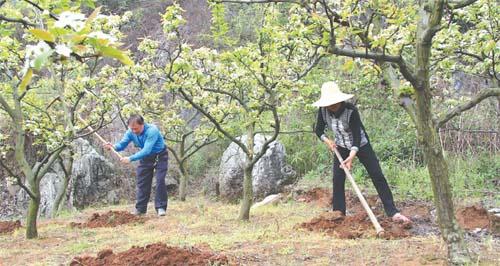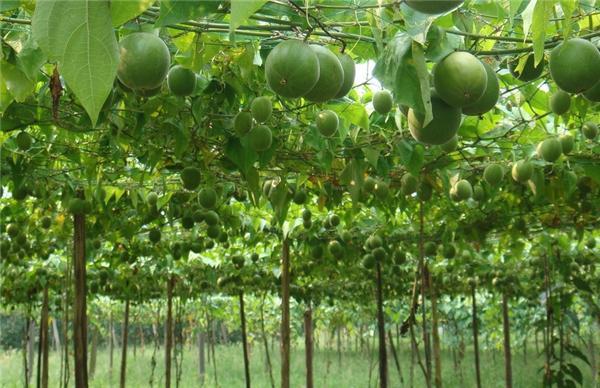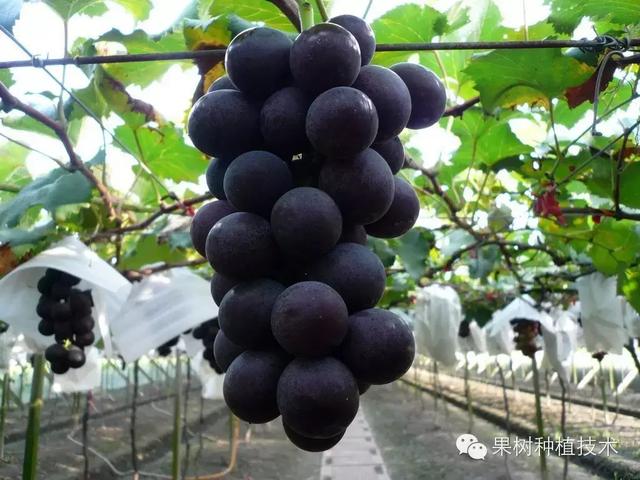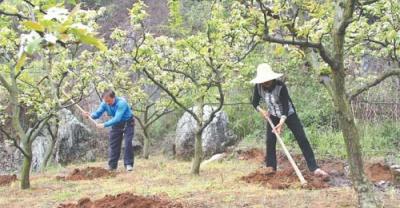How to plant fruit trees and how to apply fertilizer effectively

The plate of planting fruit trees is equivalent to the "stomach" of fruit trees, while fertilizer is equivalent to the food of fruit trees. Only when "food" is sufficient and nutritious, can fruit trees grow exuberantly and be strong; the root system is equivalent to the absorption organ of fruit trees, and the root system has strong absorptive capacity, so that fruit trees can eat and drink enough, work more, and bear more fruit. Improving soil, enriching soil nutrition and optimizing the living environment of fruit trees are important guarantees to improve the yield, quality and benefit of fruit trees.

1 Distribution of root system and range of fertilization
The root distribution of fruit trees is deep and wide, and the depth and range of fertilization should be determined according to fertilizer types, fertilizer characteristics, tree age, tree species, varieties, rootstocks and so on. In general, adult fruit trees should be applied within half a meter of crown projection extension, half a meter away from the trunk of this plane range; vertical range, young trees can be shallower, adult trees can be deeper. Most of the fruit trees planted now belong to medium-close planting cultivation, and the root distribution is mostly concentrated in the range of 20-50 cm, so the fertilizers that are not easy to move, such as phosphate fertilizer, multi-component compound fertilizer and organic fertilizer, should be applied to this range in order to play a good effect.

2 main points of application of organic fertilizer
Organic fertilizer is rich in nutrients and is the favorite fertilizer for fruit trees. There are many kinds of organic fertilizer, such as human feces and urine, livestock manure, straw, weeds, bean cake, cottonseed skin and so on. Organic fertilizer must be mature before it can be applied, otherwise, nutrients are not easy to be absorbed by fruit trees, and it is easy to cause root burning.
It is worth noting that many large-scale farms use fire lye to sterilize and sterilize the sheds, and these liquids are washed into the feces to make them strongly alkaline, so it is easy to burn the roots of fruit trees when applied directly. Therefore, after buying this kind of organic fertilizer, you must accumulate and rot for more than 2 months, and then apply it to the orchard. When using it, you can first test it with the pH value test paper, which shows that it is safe to use when it is about 7.

(3) Technical points of applying mineral nutrition.
Mineral nutrition, commonly known as chemical fertilizer, is necessary for fruit trees. Just like human beings want to eat salt, fruit trees also need "salt". There are many kinds of salt needed, the most important are nitrogen, phosphorus and potassium, and the next most important are calcium, magnesium, iron, boron, zinc, copper, molybdenum, sulfur, silicon and so on. Nitrogen, phosphorus and potassium are called a large number of elements, and the latter are generally called medium and trace elements. Adding a small amount of rare earth elements to fruit trees is also very effective in increasing production and improving quality of fruit trees. The control of these fertilizers on the yield of fruit trees can be explained by the "barrel theory".

The nutrition needed by all fruit trees is one of the wood chips that make up the bucket. the height of these wood chips represents the amount of nutrients available in the soil. The fertilizer efficiency depends on the element with the least content in the soil, not on the element with the most content. Only by increasing the element that the fruit tree needs most, but contains the least, can the barrel hold more water. That is to say, the fruit tree can form a higher yield. Increasing a large amount of nitrogen, phosphorus and potassium can not improve the yield and quality, and sometimes even counteract or burn out the roots of fruit trees. Attention should be paid to balanced fertilization, dominated by organic fertilizer and supplemented by chemical fertilizer, so as to give full play to the maximum role of fertilizer.

Some fruit trees will show some abnormalities after element deficiency: yellow leaf disease is common, which is generally caused by iron deficiency, but amino acid chelated iron can be sprayed on the trees and ferrous sulfate is applied underground. Lobular disease, usually caused by zinc deficiency, can be sprayed with zinc amino acid chelate on the tree, combined with underground application of zinc sulfate. The fruit surface is potholed, the top is easy to be soft and rotten, and the fruit face is black spots, which are mostly caused by lack of calcium. Amino acid calcium fertilizer can be sprayed in the young fruit stage. Sometimes the lack of elements is not obvious on fruit trees, that is, they do not like flowers and fruits, which are all caused by malnutrition.
4 how to improve the soil environment
This is an important guarantee to increase the root vitality of fruit trees. One is to increase the application of organic fertilizer. If the soil is rich in organic matter, the number of microorganisms is huge, which can increase the formation of soil aggregate structure and root nutrition. Second, not only to keep the soil moist, but also to maintain good permeability. Timely watering and drainage are also important. All nutrients must be in a moist state before they can be absorbed by fruit trees.
If it rains too much and stagnates for too long, it will also cause poor root permeability and lead to root death. The third is to carry out soil conditioning scientifically. Soil conditioner-no deep ploughing, plays an important role in improving soil permeability and can be applied. The fourth is the application of biological fertilizer. On the basis of the application of a large amount of organic fertilizer, the application of biological bacterial fertilizer can increase the number of beneficial bacteria in the soil, inhibit the development of harmful bacteria, decompose the elements such as potassium and phosphorus fixed by the soil, and have an excellent effect on enriching soil nutrition.
(5) fertilization method
Those with good solubility, such as urea and potash fertilizer, can be applied in shallow pits with a depth of 10 to 15 centimeters, or sprinkled on the tree plate. Organic fertilizer can be used in many ways and used alternately. Pit application, furrow application and ploughing application are carried out alternately to ensure that the roots can make the best use of the fertilizers applied.
6 tree disk cover
Grass mulching is also a good way to increase organic matter in orchards. However, it is required that the inter-row size of the orchard is 1.5 to 2 meters larger than that of the plants, and the legumes are planted between the rows. After growing tall, they are cut off and covered in the tree plate, and carried out year after year. Over time, the organic matter in the orchard will gradually increase. Straw mulching is also a good way to increase soil organic matter.
7 prevention and control of root diseases
Trench irrigation, copper sulfate, 40% (w) formaldehyde 100 times, 5% (w) bacteria clear 50 times, and so on.
8 amount of fertilizer applied
In September, November in autumn, apples were treated with compound fertilizer containing 100 kg of nitrogen, phosphorus and potassium of 15% (w) per mu, mixed with 5-8 square rotten organic fertilizers, 50 kg per mu from March to April in spring, and 50 kg per mu in June and July in summer.
- Prev

What regulators do citrus growers need?
Paclobutrazol has the effects of delaying plant growth, inhibiting stem elongation, shortening internodes, promoting plant tillering, increasing plant stress resistance and improving yield. Citrus...
- Next

How to plant okra seeds? Sowing method of okra
Okra is an annual herb of the genus okra of Malvaceae. Its young pods can be used as vegetables. It is known as the king of vegetables. It has high edible value and economic efficiency.
Related
- Fuxing push coffee new agricultural production and marketing class: lack of small-scale processing plants
- Jujube rice field leisure farm deep ploughing Yilan for five years to create a space for organic food and play
- Nongyu Farm-A trial of organic papaya for brave women with advanced technology
- Four points for attention in the prevention and control of diseases and insect pests of edible fungi
- How to add nutrient solution to Edible Fungi
- Is there any good way to control edible fungus mites?
- Open Inoculation Technology of Edible Fungi
- Is there any clever way to use fertilizer for edible fungus in winter?
- What agents are used to kill the pathogens of edible fungi in the mushroom shed?
- Rapid drying of Edible Fungi

